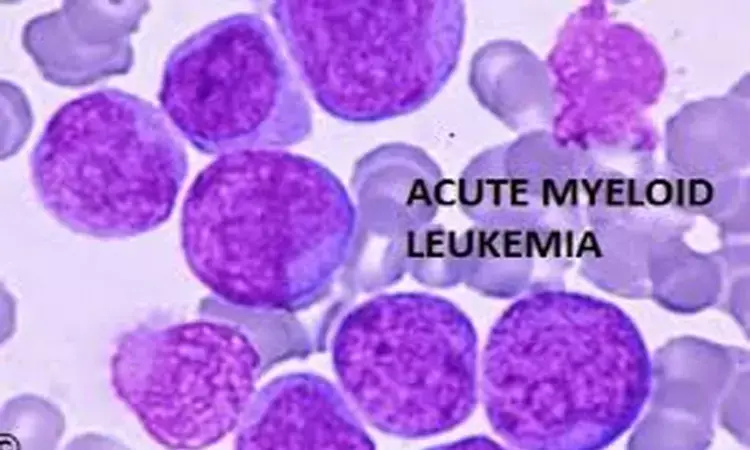- Home
- Medical news & Guidelines
- Anesthesiology
- Cardiology and CTVS
- Critical Care
- Dentistry
- Dermatology
- Diabetes and Endocrinology
- ENT
- Gastroenterology
- Medicine
- Nephrology
- Neurology
- Obstretics-Gynaecology
- Oncology
- Ophthalmology
- Orthopaedics
- Pediatrics-Neonatology
- Psychiatry
- Pulmonology
- Radiology
- Surgery
- Urology
- Laboratory Medicine
- Diet
- Nursing
- Paramedical
- Physiotherapy
- Health news
- Fact Check
- Bone Health Fact Check
- Brain Health Fact Check
- Cancer Related Fact Check
- Child Care Fact Check
- Dental and oral health fact check
- Diabetes and metabolic health fact check
- Diet and Nutrition Fact Check
- Eye and ENT Care Fact Check
- Fitness fact check
- Gut health fact check
- Heart health fact check
- Kidney health fact check
- Medical education fact check
- Men's health fact check
- Respiratory fact check
- Skin and hair care fact check
- Vaccine and Immunization fact check
- Women's health fact check
- AYUSH
- State News
- Andaman and Nicobar Islands
- Andhra Pradesh
- Arunachal Pradesh
- Assam
- Bihar
- Chandigarh
- Chattisgarh
- Dadra and Nagar Haveli
- Daman and Diu
- Delhi
- Goa
- Gujarat
- Haryana
- Himachal Pradesh
- Jammu & Kashmir
- Jharkhand
- Karnataka
- Kerala
- Ladakh
- Lakshadweep
- Madhya Pradesh
- Maharashtra
- Manipur
- Meghalaya
- Mizoram
- Nagaland
- Odisha
- Puducherry
- Punjab
- Rajasthan
- Sikkim
- Tamil Nadu
- Telangana
- Tripura
- Uttar Pradesh
- Uttrakhand
- West Bengal
- Medical Education
- Industry
Treatment of newly diagnosed AML in older adults: ASH Guideline

USA: The American Society of Hematology (ASH) has released an updated guideline for the treatment of newly diagnosed acute myeloid leukemia in older adults.
The guidelines, published in the journal Blood Advances, are intended to support patients, clinicians, and other health care professionals in their decisions about management of AML in older adults.
Key recommendations include:
- For older adults with newly diagnosed AML who are candidates for such therapy, the American Society of Hematology (ASH) guideline panel recommends offering antileukemic therapy over best supportive care.
- For older adults with newly diagnosed AML considered candidates for intensive antileukemic therapy, the ASH guideline panelsuggests intensive antileukemic therapy over less-intensive antileukemic therapy.
- For older adults with AML who achieve remission after at least a single cycle of intensive antileukemic therapy and who are not candidates for allogeneic hematopoietic stem cell transplantation (HSCT; allo-HSCT), the ASH guideline panel suggestspostremission therapy over no additional therapy.
- For older adults with AML considered appropriate for antileukemic therapy but not for intensive antileukemic therapy, the ASH guideline panel suggests using either of the options when choosing between hypomethylating-agent monotherapy and low-dose-cytarabine monotherapy.
- For older adults with AML considered appropriate for antileukemic therapy (such as hypomethylating agents [azacitidine and decitabine] or low-dose cytarabine) but not for intensive antileukemic therapy, the ASH guideline panel suggests using monotherapy with 1 of these drugs over a combination of 1 of these drugs with other agents.
- For older adults with AML who achieve a response after receiving less-intensive therapy, the ASH guideline panel suggestscontinuing therapy indefinitely until progression or unacceptable toxicity over stopping therapy.
- For older adults with AML who are no longer receiving antileukemic therapy (including those receiving end-of-life care or hospice care), the ASH guideline panel suggests having red blood cell (RBC) transfusions be available over not having transfusions be available. There may be rare instances where platelet transfusions may be of benefit in the event of bleeding, but there are even less data to support this practice and it is anticipated that platelet transfusions will have little or no role in end-of-life or hospice care.
"Treatment is recommended over best supportive management. More-intensive therapy is recommended over less-intensive therapy when deemed tolerable. However, these recommendations are guided by the principle that throughout a patient's disease course, optimal care involves ongoing discussions between clinicians and patients, continuously addressing goals of care and the relative risk-benefit balance of treatment," wrote the authors.
Reference:
"American Society of Hematology 2020 guidelines for treating newly diagnosed acute myeloid leukemia in older adults," is published in the journal Blood Advances.
Dr Kamal Kant Kohli-MBBS, DTCD- a chest specialist with more than 30 years of practice and a flair for writing clinical articles, Dr Kamal Kant Kohli joined Medical Dialogues as a Chief Editor of Medical News. Besides writing articles, as an editor, he proofreads and verifies all the medical content published on Medical Dialogues including those coming from journals, studies,medical conferences,guidelines etc. Email: drkohli@medicaldialogues.in. Contact no. 011-43720751


